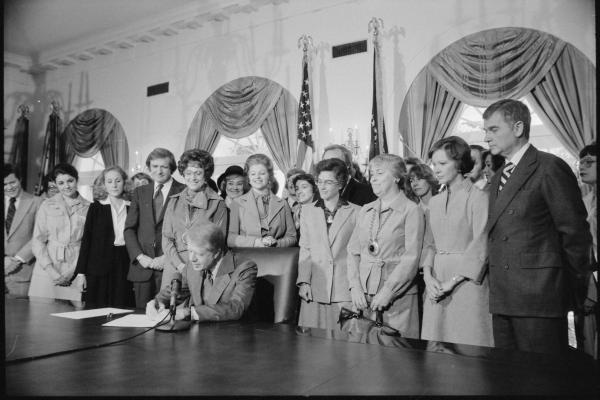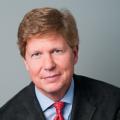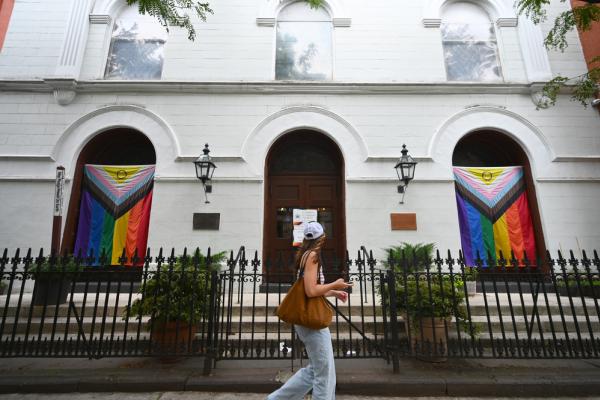Because of evangelical political behavior over the last several decades, it’s tempting to believe that evangelicals have always supported right-wing causes and politicians. That is not the case, and there’s some reason to believe that in the run-up to the 2020 presidential election, we may be witnessing an awakening of conscience among some evangelicals. If so, progressive evangelicals could do far worse than look to the 1970s for inspiration.
The decade of the 1970s did not begin or end well for progressive evangelicalism. In between, however, the movement may have reached its zenith with a remarkable affirmation of evangelical social concern and the election of a progressive evangelical as president of the United States.
Richard Nixon’s promise of a “secret plan” to end the war in Vietnam, which boosted him to presidency in 1968, turned out to entail expanding the war to Cambodia in the spring of 1970, thereby prompting protests across the nation and the shooting of four students by the Ohio National Guard at Kent State University on May 4, 1970. Nevertheless, Nixon rallied his “silent majority” in advance of the 1972 presidential election, and he entered the campaign with decided advantages.
The Democratic nominee was George McGovern, senator from South Dakota who grew up in the parsonage of a Wesleyan Methodist minister and who himself studied for the ministry at Garrett-Evangelical Theological Seminary before going on to earn the Ph.D. from Northwestern University. McGovern, a decorated war hero in World War II, brought his campaign to Wheaton College’s Edman Chapel on the morning of October 11, 1972.
I was a first-year student at Trinity College, and I persuaded several of my classmates to skip our daily chapel and accompany me to Wheaton. I shall never forget the scene. Students paraded around the chapel with Nixon campaign banners. McGovern opened by saying that he had wanted to attend Wheaton, but his family couldn’t afford it. He went on to explain that his understanding of justice and social responsibility was derived from the Bible. By the end of his remarks, McGovern had won a respectful hearing from many of the students.
Nevertheless, Billy Graham had endorsed Nixon, and white evangelicals followed the evangelist’s lead.
In the course of McGovern’s forlorn campaign, a small number of evangelicals formed an organization called Evangelicals for McGovern (Richard Mouw, one of the members, joked that the entire organization could meet in a phone booth). That organization, however, became the basis for a gathering a year later at the Chicago YMCA on Wabash Street. Convened by Ronald Sider, 55 evangelicals met to hammer out what became known as the Chicago Declaration of Evangelical Social Concern.
The Chicago Declaration was a remarkable document in that it reaffirmed evangelicalism’s historical commitment to those Jesus called “the least of these.” The Declaration decried the persistence of militarism, racism, and economic inequality in American life. It pointed out the scandal of hunger in such an affluent society; it condemned materialism and called for justice. And at the behest of Nancy Hardesty, professor of English at Trinity College, the Chicago Declaration reaffirmed evangelicalism’s historic commitment to women’s equality.
Within six months, the governor of Georgia addressed a group of graduating seniors at the University of Georgia Law School. He sounded many of the same themes as the Chicago Declaration – racial justice, prison reform, the corruption of regulatory institutions in Washington. Jimmy Carter’s extemporaneous remarks were so compelling that one of the journalists in attendance, Hunter S. Thompson of Rolling Stone, went to his car to retrieve a tape recorder so he could record something extraordinary, he said later, a politician willing to tell the truth.
In December 1974, Carter announced his candidacy for the Democratic presidential nomination. Carter, a Southern Baptist Sunday school teacher, was unabashed about his faith, repeatedly identifying himself as a “born again” Christian, thereby sending every journalist in New York to his rolodex to figure out what in the world he was talking about.
For America’s evangelicals, however, the language was familiar. At a time when evangelicals were not organized politically, many evangelicals voted for Carter. Some responded to his promise never knowingly to lie to the American people, a radical idea in the wake of Nixon’s endless prevarications. Others embraced his agenda. Still others supported Carter out of the sheer novelty of voting for one of their own.
Gerald Ford, Nixon’s appointed successor and Carter’s Republican opponent, made a case for his own evangelical credentials. Ford had served on the vestry of his Episcopal parish, and his son Michael was a student at Gordon-Conwell Theological Seminary. Had it not been for Carter’s ill-advised interview in Playboy magazine, which hit the newsstands in September – the candidate wanted to dispel the notion that he was self-righteous – Carter would have won the election in a landslide. Instead, the interview cost him 15 percentage points in popularity, and he squeaked to a win on Election Day.
On January 20, 1977, he opened his inaugural address by thanking his predecessor (and erstwhile opponent) for “all he has done to heal our land.”
Carter quickly embarked on his agenda. He pardoned Vietnam-era draft evaders and, recognizing that the United States must abandon colonialism if it were to have meaningful relationships with Latin American countries, Carter pursued ratification of the Panama Canal treaties, a process set in motion by Lyndon Johnson. He made peace in the Middle East a priority, which culminated in the historic Camp David Accords. He sought to reorient American foreign policy away from Cold War dualism toward an emphasis on human rights, and he recognized the necessity of conservation and setting the nation on a course toward energy independence.
With his protection of wilderness areas, many environmentalists regard Carter as the greatest environmental president ever. He appointed more women and minorities to government posts than any previous president.
Carter’s policy ambitions, however, were shackled by a persistently sour economy. Interest rates remained stubbornly high, and the taking of American hostages in Iran in November 1979 cast a pall over his presidency.
What Carter did not know until well into his re-election campaign is that a group of evangelicals were already conspiring against him.
Next time: The abortion myth and the rise of the Religious Right
Got something to say about what you're reading? We value your feedback!





